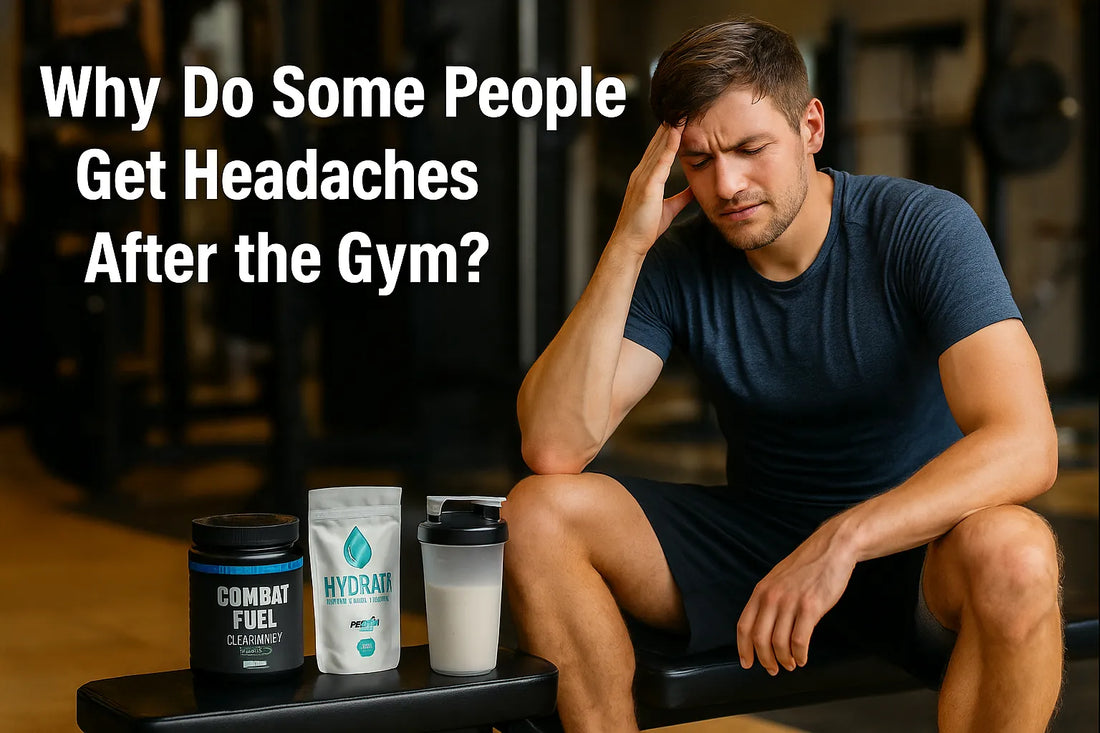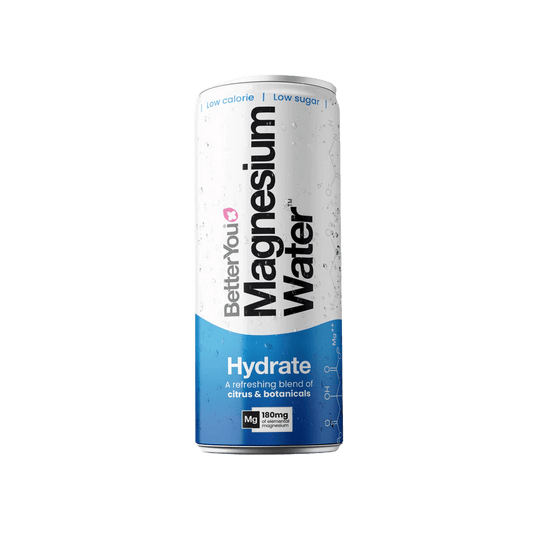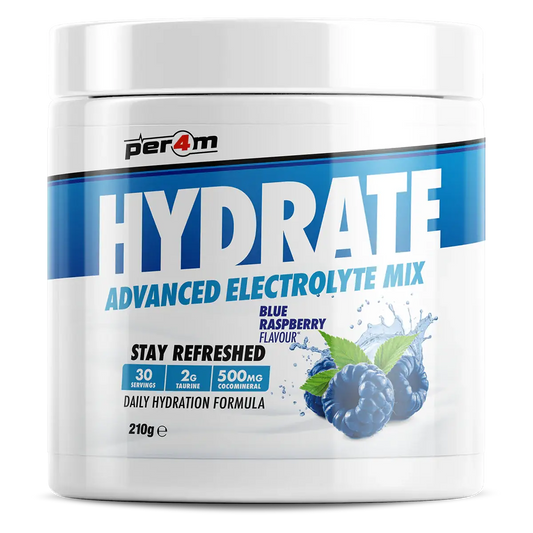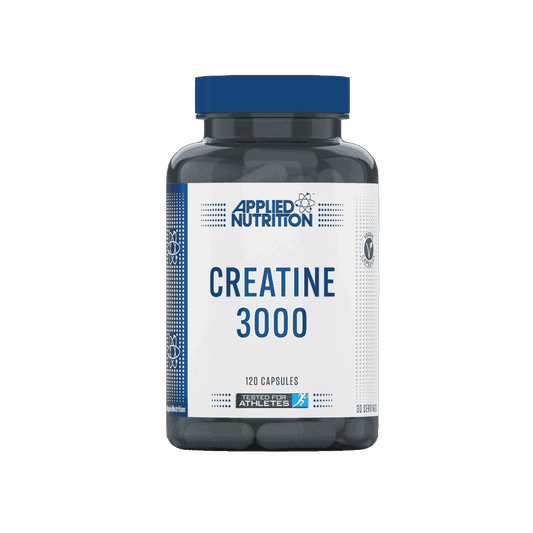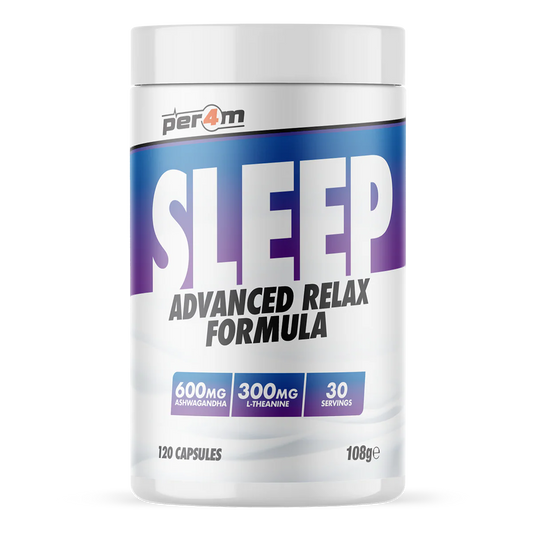Working out should leave you feeling energised, accomplished, and maybe a little sore in the muscles. But for many people, hitting the gym brings an unexpected side effect: headaches. Instead of walking out with a post-exercise high, they leave rubbing their temples, squinting under the lights, and wondering what went wrong.
These “exercise-induced headaches” are surprisingly common, yet still poorly understood. The good news is, in most cases, they’re preventable. By looking at what causes them — and how hydration, recovery, and smart supplementation play a role — you can get back to enjoying your workouts headache-free.
Why Do I Get Headaches After the Gym?
Exercise-induced headaches often strike during or just after a workout, particularly high-intensity sessions. They can feel like a throbbing pain on both sides of the head or a tight band squeezing around the temples.
Common causes include:
-
Dehydration – Sweat isn’t just water; it’s electrolytes like sodium, potassium, and magnesium. Losing too much without replenishing can trigger head pain.
-
Tension in the neck and shoulders – Poor form or straining on heavy lifts can lead to tension headaches.
-
Blood pressure changes – Intense exertion raises blood pressure temporarily, which can spark vascular headaches in some people.
-
Overexertion – Simply pushing beyond what your body can handle.
Hydration is the single biggest factor. If you’ve ever left the gym with a pounding headache, there’s a strong chance your water-and-electrolyte balance was off. That’s where recovery aids like Per4m Hydrate Electrolyte Mix can make a difference — it goes beyond plain water by delivering sodium, potassium, and vitamin C to restore balance.

Why Am I So Exhausted After the Gym?
Feeling wiped out after training is normal — you’ve just asked your muscles to burn fuel, push against resistance, and deal with fatigue. But if you’re too exhausted, to the point where you can’t concentrate or function, something’s off.
The culprits:
-
Not enough fuel – Training on an empty stomach or failing to eat afterwards leaves your glycogen stores depleted.
-
Dehydration – Again, it’s not just about fluids, but electrolytes too.
-
Poor recovery routine – Skipping cooldowns, stretching, or sleep builds up fatigue.
One of the easiest fixes? Nutrition. Post-gym protein and hydration go hand-in-hand with recovery. A refreshing shake of Combat Fuel Clear Whey provides fast-absorbing protein without the heaviness of a milky shake. Combine that with Per4m Hydrate Electrolyte Mix and you’re addressing both muscle repair and fluid balance in one go.
Can Pre-Workout Cause Headaches?
Yes — but it depends on how your body handles stimulants.
Most pre-workouts contain caffeine (sometimes a lot), vasodilators like citrulline malate, and beta-alanine. For some, this cocktail is a game-changer for performance. For others, it’s a recipe for jitters, tingling, and even headaches.
Take Optimum Nutrition Platinum Pre-Workout. Each serving delivers 200mg of caffeine — about two cups of coffee — plus 3.2g of beta-alanine and 6g of citrulline. It’s effective, but if you’re caffeine-sensitive or underhydrated, it can leave your head pounding.
Compare this to Applied Nutrition ABE Pump, a stim-free pre-workout you also stock. It delivers performance-boosting pumps and endurance benefits without caffeine, making it ideal for late-night lifters who don’t want the risk of stimulant-induced headaches.
The bottom line: pre-workout can help performance, but if it consistently leaves you with headaches, either lower your dosage or switch to a stim-free alternative.

How Do You Tell If You Are Overtraining?
Headaches are sometimes the body’s way of saying: “enough.”
Overtraining syndrome happens when your workout intensity outpaces your recovery. Warning signs include:
-
Constant fatigue and poor sleep.
-
Persistent muscle soreness.
-
Increased irritability and low mood.
-
Frequent headaches or illness.
-
Plateauing or even declining performance.
Supplements can help with recovery, but they’re not magic bullets. Smart strategies include scheduling rest days, fuelling properly, and supporting your nervous system.
This is where products like Per4m Sleep and BetterYou Magnesium Water come in. The former helps optimise sleep quality — crucial for muscle and brain recovery — while magnesium plays a role in reducing tension and supporting relaxation. Together, they can help you avoid the downward spiral of overtraining.

How Long Should Tiredness Last Post-Exercise?
For most people, post-gym tiredness lasts a few hours. A tough session might leave you yawning by evening, but a good night’s sleep usually clears the slate.
But if fatigue or headaches stretch on for a full day or more, it’s a red flag. It suggests you’re not fuelling, hydrating, or resting adequately.
Some quick fixes:
-
Drink plenty of water with electrolytes, not just plain fluids.
-
Refuel with a protein + carb combo like a whey shake and fruit.
-
Stretch or foam roll to release tension.
-
Prioritise 7–9 hours of sleep.
Your body should feel recharged within 24 hours. If not, it’s a sign your recovery routine needs attention.
Conclusion (Part 1)
Exercise-induced headaches and post-gym exhaustion are frustrating but rarely permanent problems. Most of the time, they boil down to hydration, fuelling, and training balance.
-
Stay on top of electrolytes with Per4m Hydrate Electrolyte Mix.
-
Support muscle recovery with Combat Fuel Clear Whey.
-
Consider stim-free pre-workouts like Applied Nutrition ABE Pump if caffeine is an issue.
-
Protect your rest with Per4m Sleep and magnesium support.
In Part 2, we’ll cover specific strategies to stop exercise headaches in their tracks, the truth about creatine and hydration, and when to seek medical help.
Why Do Some People Get Headaches After the Gym? (Part 2)
How to Stop Exercise Headaches
The fastest way to tackle gym headaches is to address their most common triggers. Here are evidence-based strategies:
-
Hydrate before, during, and after – Don’t wait until you’re thirsty. Add an electrolyte mix like Per4m Hydrate Electrolyte Mix to cover sodium, potassium, and magnesium losses.
-
Warm up properly – Going from zero to max effort spikes blood pressure and strains muscles. A 10-minute warm-up helps prevent sudden vascular changes.
-
Check your form – Tension headaches often come from clenching your jaw or shrugging shoulders during lifts. Film your form or work with a trainer to correct this.
-
Fuel smarter – Low blood sugar can trigger headaches. A light carb source before training — a banana or rice cake — can help.
-
Ease into pre-workout – If you use Optimum Nutrition Platinum Pre-Workout, try half a scoop instead of a full one until you know your tolerance.
Headaches don’t have to be part of your routine. Most lifters find that once they correct hydration, posture, and fuelling, their gym headaches fade away.

Can Too Much Exercise Cause Headaches?
Yes. Overexertion is one of the most common causes of recurring exercise headaches.
When you push beyond your recovery capacity, you create a perfect storm: high blood pressure, tight muscles, and electrolyte depletion. The result is a pounding head and extreme fatigue.
Athletes training twice a day are especially prone to this, but even weekend warriors can fall into the trap. If you’re constantly reaching for painkillers after workouts, your body is telling you to scale back.
This is where Naughty Boy Prime Creatine can support performance without needing to push intensity into “overtraining” territory. Creatine increases strength and endurance, meaning you don’t have to train to the absolute limit every time to see progress.
Should I Stop Working Out if I Get a Headache?
It depends.
-
Mild headache during training? Pause, hydrate, and see if it eases up. Often, electrolytes or better breathing technique solve the issue.
-
Severe or sudden headache? Stop immediately. Rarely, exercise headaches can be linked to serious issues like blood vessel problems. If pain is sharp or persistent, seek medical attention.
You should never “train through” pain that feels abnormal. A consistent, nagging headache is a sign something in your recovery or routine needs fixing.
Why Doesn’t Working Out Give Me Energy?
We’ve all heard that exercise boosts mood and energy levels thanks to endorphins. But if you consistently feel worse afterwards, it’s a red flag.
-
Dehydration – Sweating heavily without replenishing.
-
Under-eating – No fuel = no energy.
-
Poor recovery – Skipping sleep and stress management.
-
Supplement mismatch – Using heavy stimulant pre-workouts can lead to an energy crash post-gym.
For sustainable energy, think balance:
-
Before: small carb snack + water.
-
During: electrolytes (Per4m Hydrate).
-
After: fast protein like Combat Fuel Clear Whey + rest.
-
Long term: sleep support from Per4m Sleep keeps your body consistent.
This combination restores what your body loses and prevents that frustrating “why am I so drained?” feeling.
The Truth About Creatine and Headaches
Creatine is one of the most researched supplements on the planet — and no, it doesn’t directly cause headaches.
The confusion comes from two things:
-
Poor hydration – Creatine draws water into muscle cells. If you don’t drink more, you can end up slightly dehydrated, which can lead to headaches.
-
Overloading – Some people still use a “loading phase” (20g per day). That’s unnecessary and sometimes uncomfortable. A steady 3–5g serving, like in Applied Nutrition Creatine 300 (120 Caps), is safer and easier.
Take it with plenty of water and electrolytes, and creatine becomes a tool for strength, endurance, and recovery — not a trigger for headaches.

When to See a Doctor?
Most gym headaches are harmless. But there are times when you should take them seriously. Seek medical advice if:
-
The headache is sudden and severe (“worst headache of your life”).
-
It comes with dizziness, blurred vision, or nausea.
-
It persists for days after training.
-
Painkillers don’t touch it.
These symptoms could indicate an underlying issue unrelated to exercise. Better safe than sorry.
Conclusion (Part 2)
Headaches after the gym are frustrating, but almost always solvable. The keys are hydration, fuelling, pacing, and recovery.
Here’s your action plan:
-
Hydrate smart: Water plus Per4m Hydrate Electrolyte Mix.
-
Recover smarter: Combat Fuel Clear Whey for protein, Naughty Boy Prime Creatine for strength, Per4m Sleep for rest.
-
Train smarter: Warm up, pace intensity, and listen to your body.
With these steps, the headaches stop, the energy returns, and you can finally enjoy the buzz that training is supposed to give you.
FAQ’s
1. Why do I get a headache after the gym?
Exercise can temporarily increase blood pressure and tension in the neck and head, leading to what’s known as an “exercise-induced headache.” Dehydration, poor breathing technique, and electrolyte imbalance also play a role.
2. Can dehydration cause headaches after a workout?
Yes. Even mild dehydration can cause blood vessels to constrict, leading to headaches. That’s why electrolyte supplements like Per4m Hydrate Electrolyte Mix or Optimum Nutrition Electrolyte Powder can help.
3. Are exercise headaches dangerous?
Most gym headaches are harmless and go away within a few hours. However, if they’re severe, long-lasting, or accompanied by dizziness or blurred vision, it’s best to consult a doctor.
4. Can pre-workout cause headaches?
Yes. Stimulants like caffeine and vasodilators such as citrulline can sometimes cause headaches if you’re sensitive. Switching to a milder pre-workout like Optimum Nutrition Platinum Pre, or a stim-free option such as Applied Nutrition ABE Pump, may help.
5. How do I stop getting headaches after the gym?
Stay hydrated, fuel properly before training, and avoid holding your breath during lifts. Using supplements like BetterYou Magnesium Water can also support muscle relaxation and recovery.
6. Should I stop training if I get a headache?
If the pain is mild, pausing for water and rest may be enough. But if the headache is severe or happens regularly, take a break from exercise until the cause is clear.
7. Do creatine supplements cause headaches?
Creatine itself doesn’t usually cause headaches, but dehydration can make them more likely. Always take creatine, such as Naughty Boy Prime Creatine, with plenty of water.
8. Why do I get a headache after lifting weights but not cardio?
Heavy lifting often causes people to hold their breath (the Valsalva maneuver), which spikes blood pressure and can trigger headaches. Cardio usually encourages more regular breathing.
9. How long do exercise-induced headaches last?
Most fade within 30 minutes to a few hours. Staying hydrated and cooling down properly after training can reduce their duration.
10. What should I drink if I get a headache after the gym?
Water is the first priority. If you’ve sweated heavily, an electrolyte drink like Per4m Hydrate Electrolyte Mix or Optimum Nutrition Electrolyte Powder can speed up recovery.

